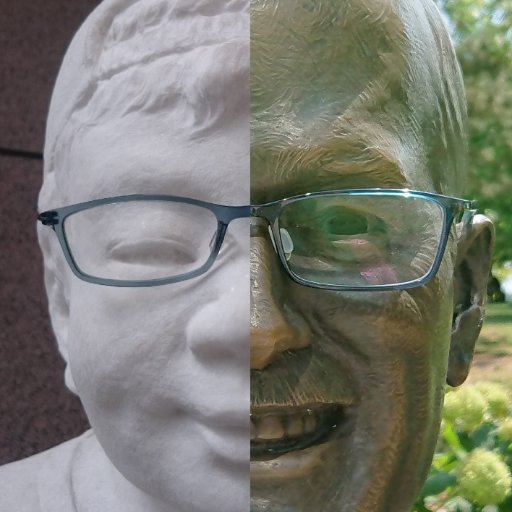結果
| 問題 | No.1647 Travel in Mitaru city 2 |
| コンテスト | |
| ユーザー |
 n_vip n_vip
|
| 提出日時 | 2021-08-13 21:51:43 |
| 言語 | C++17 (gcc 15.2.0 + boost 1.89.0) |
| 結果 |
AC
|
| 実行時間 | 66 ms / 2,500 ms |
| コード長 | 6,553 bytes |
| 記録 | |
| コンパイル時間 | 1,789 ms |
| コンパイル使用メモリ | 140,836 KB |
| 最終ジャッジ日時 | 2025-01-23 18:52:22 |
|
ジャッジサーバーID (参考情報) |
judge3 / judge5 |
(要ログイン)
| ファイルパターン | 結果 |
|---|---|
| sample | AC * 3 |
| other | AC * 48 |
ソースコード
#include <string>
#include <vector>
#include<iostream>
#include<cstdio>
#include<cstdlib>
#include<stack>
#include<queue>
#include<cmath>
#include<algorithm>
#include<functional>
#include<list>
#include<deque>
#include<bitset>
#include<set>
#include<map>
#include<unordered_map>
#include<unordered_set>
#include<cstring>
#include<sstream>
#include<complex>
#include<iomanip>
#include<numeric>
#include<cassert>
#include<random>
#define X first
#define Y second
#define pb push_back
#define rep(X,Y) for (int (X) = 0;(X) < (int)(Y);++(X))
#define reps(X,S,Y) for (int (X) = (int)(S);(X) < (int)(Y);++(X))
#define rrep(X,Y) for (int (X) = (int)(Y)-1;(X) >=0;--(X))
#define rreps(X,S,Y) for (int (X) = (int)(Y)-1;(X) >= (int)(S);--(X))
#define repe(X,Y) for ((X) = 0;(X) < (Y);++(X))
#define peat(X,Y) for (;(X) < (Y);++(X))
#define all(X) (X).begin(),(X).end()
#define rall(X) (X).rbegin(),(X).rend()
#define eb emplace_back
#define UNIQUE(X) (X).erase(unique(all(X)),(X).end())
#define Endl endl
#define NL <<"\n"
#define cauto const auto
using namespace std;
using ll=long long;
using pii=pair<int,int>;
using pll=pair<ll,ll>;
template<class T> using vv=vector<vector<T>>;
template<class T> inline bool MX(T &l,const T &r){return l<r?l=r,1:0;}
template<class T> inline bool MN(T &l,const T &r){return l>r?l=r,1:0;}
//#undef NUIP
#ifdef NUIP
#include "benri.h"
#else
#define out(args...)
#endif
void ouT(ll x,int d=3){auto re=to_string(x);if((int)re.size()>d) re=x>0?"oo":"-oo";cout<<string(d-re.size(),' ')<<re<<",";}
#ifdef __cpp_init_captures
template<typename T>vector<T> table(int n, T v){ return vector<T>(n, v);}
template <class... Args> auto table(int n, Args... args){auto val = table(args...); return vector<decltype(val)>(n, move(val));}
#endif
template<class A,class B> pair<A,B> operator+(const pair<A,B> &p,const pair<A,B> &q){ return {p.X+q.X,p.Y+q.Y};}
template<class A,class B,class C,class D> pair<A,B>& operator+=(pair<A,B> &p,const pair<C,D> &q){ p.X+=q.X; p.Y+=q.Y; return p;}
template<class A,class B> pair<A,B> operator-(const pair<A,B> &p,const pair<A,B> &q){ return {p.X-q.X,p.Y-q.Y};}
template<class A,class B,class C,class D> pair<A,B>& operator-=(pair<A,B> &p,const pair<C,D> &q){ p.X-=q.X; p.Y-=q.Y; return p;}
template<class A,class B> istream& operator>>(istream &is, pair<A,B> &p){ is>>p.X>>p.Y; return is;}
template<class T=ll> T read(){ T re; cin>>re; return re;}
template<class T=ll> T read(const T &dec){ T re; cin>>re; return re-dec;}
template<class T=ll> vector<T> readV(const int sz){ vector<T> re(sz); for(auto &x:re) x=read<T>(); return re;}
template<class T=ll> vector<T> readV(const int sz, const T &dec){ vector<T> re(sz); for(auto &x:re) x=read<T>(dec); return re;}
vv<int> readG(const int &n,const int &m){ vv<int> g(n); rep(_,m){ cauto a=read<int>(1),b=read<int>(1); g[a].pb(b); g[b].pb(a);} return g;}
vv<int> readG(const int &n){ return readG(n,n-1);}
vv<int> readD(const int &n,const int &m){ vv<int> g(n); rep(_,m){ cauto a=read<int>(1),b=read<int>(1); g[a].pb(b); } return g;}
vv<int> readD(const int &n){ return readD(n,n-1);}
template<class T> vv<pair<int,T>> readG(const int &n,const int &m){ vv<pair<int,T>> g(n); rep(_,m){ cauto a=read<int>(1),b=read<int>(1); cauto c=read<T>(); g[a].eb(b,c); g[b].eb(a,c);} return g;}
template<class T> vv<pair<int,T>> readG(const int &n){ return readG<T>(n,n-1);}
template<class T> vv<pair<int,T>> readD(const int &n,const int &m){ vv<pair<int,T>> g(n); rep(_,m){ cauto a=read<int>(1),b=read<int>(1); cauto c=read<T>(); g[a].eb(b,c); } return g;}
template<class T> vv<pair<int,T>> readD(const int &n){ return readD<T>(n,n-1);}
#ifdef __cpp_init_captures
template<typename T> vector<T> readT(int n, T v){ return readV(n,v);}
template <class... Args> auto readT(int n, Args... args){ vector re(1,readT(args...));rep(_,n-1) re.eb(readT(args...)); return re;}
template<typename T, size_t... Is> void addadd(T& t1, const T& t2, integer_sequence<size_t, Is...>){ cauto l = { (get<Is>(t1) += get<Is>(t2), 0)... }; (void)l;}
template <typename...T>tuple<T...>& operator += (tuple<T...>& lhs, const tuple<T...>& rhs){ addadd(lhs, rhs, index_sequence_for<T...>{}); return lhs;}
template <typename...T>tuple<T...> operator +(tuple<T...> lhs, const tuple<T...>& rhs){ return lhs += rhs;}
template<typename T, size_t... Is> void subsub(T& t1, const T& t2, integer_sequence<size_t, Is...>){ cauto l = { (get<Is>(t1) -= get<Is>(t2), 0)... }; (void)l;}
template <typename...T>tuple<T...>& operator -= (tuple<T...>& lhs, const tuple<T...>& rhs){ subsub(lhs, rhs, index_sequence_for<T...>{}); return lhs;}
template <typename...T>tuple<T...> operator - (tuple<T...> lhs, const tuple<T...>& rhs){ return lhs -= rhs;}
template<class Tuple, size_t... Is> void read_tuple_impl(istream &is, Tuple& t, index_sequence<Is...>){((is >> get<Is>(t)), ...);}
template<class... Args> auto& operator>>(istream &is, tuple<Args...>& t){ read_tuple_impl(is, t, index_sequence_for<Args...>{}); return is;}
#endif
#define TT cauto TTT=read();rep(_,TTT)
const ll MOD=1e9+7; //998244353;
struct UF{
vector<int> data;
UF(const int &size):data(size,-1){}
int unite(int x, int y){
x=root(x); y=root(y);
if(x==y) return 0;
if(-data[y]>-data[x]) swap(x,y);
data[x]+=data[y]; data[y]=x;
return y+1;
}
bool findSet(const int &x, const int &y){ return root(x)==root(y);}
int root(const int &x){ return data[x]<0?x:data[x]=root(data[x]);}
int size(const int &x){ return -data[root(x)];}
int size(){ return count_if(all(data),[](const int &x){ return x<0;});}; //unverified
int operator()(const int &x, const int &y){ return unite(x,y);}
int operator()(const pii &xy){ return unite(xy.X,xy.Y);}
int operator[](const int &x){ return root(x);}
bool operator[](const pii &xy){ return findSet(xy.X,xy.Y);}
};
int main(){
ios_base::sync_with_stdio(false); cin.tie(0);
cout<<fixed<<setprecision(0);
cauto l=read();
cauto r=read();
cauto m=read();
cauto es=readV<pii>(m,{1,1});
UF uf(l+r);
vv<pii> g(l+r);
rep(i,m){
cauto &[a,b]=es[i];
if(uf(a,l+b)){
g[a].eb(l+b,i);
g[l+b].eb(a,i);
continue;
}
vector<int> re;
cauto dfs=
[&](auto &&dfs,int v,int p)->void{
if(v==a){
if(es[re[0]].Y==es[re[1]].Y){
re.eb(i);
}else{
re.insert(re.begin(),i);
}
cout<<re.size() NL;
for(cauto &x:re) cout<<x+1<<" ";
cout NL;
return;
}
re.eb();
for(cauto &[u,e]:g[v])if(p!=u){
re.back()=e;
dfs(dfs,u,v);
}
re.pop_back();
};
dfs(dfs,l+b,-1);
return 0;
}
cout<<-1 NL;
return 0;
}
